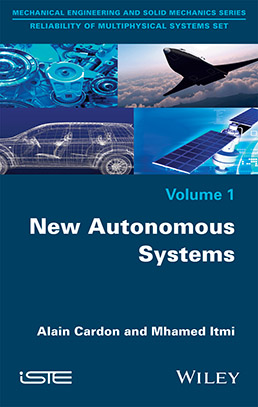
The idea of autonomous systems that are able to make choices according to properties which allow them to experience, apprehend and assess their environment is becoming a reality. These systems are capable of auto-configuration and self-organization.
This book presents a model for the creation of autonomous systems based on a complex substratum, made up of multiple electronic components that deploy a variety of specific features.
This substratum consists of multi-agent systems which act continuously and autonomously to collect information from the environment which they then feed into the global system, allowing it to generate discerning and concrete representations of its surroundings.
These systems are able to construct a so-called artificial corporeity which allows them to have a sense of self, to then behave autonomously, in a way reminiscent of living organisms.
1. Systems and their Design.
2. The Global Architecture of an Autonomous System.
3. Designing a Multi-agent Autonomous System.
4. Generation of Current Representation and Tendencies.
5. The Notions of Point of View, Intentand Organizational Memory.
6. Towards the Minimal Self of an Autonomous System.
7. Global Autonomy of Distributed Autonomous Systems.
Alain Cardon is a researcher at INSA Rouen, in France. He has previously held various university teaching positions within informatics and specializes in AI, multi-agent systems and machine consciousness.
Mhamed Itmi is Associate Professor at INSA Rouen, in France. His research interests include decision support in AI, distributed systems and simulation using autonomous systems.